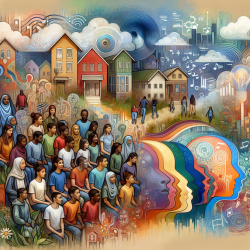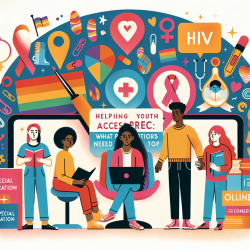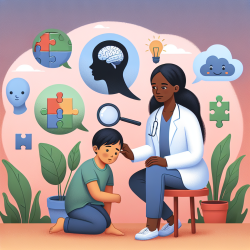Unlocking the Secrets of Successful Youth Settlement: A Data-Driven Approach
As practitioners in the field of speech-language pathology, we are often tasked with addressing the unique challenges faced by migrant and refugee youth. The recent study titled Rebuilding life after migration: Research protocol of a mixed methods study on settlement experiences of refugee and migrant youth provides invaluable insights that can significantly enhance our understanding and practice. This blog post delves into the study's findings and explores how practitioners can implement these insights to improve outcomes for migrant youth.
Key Findings of the Study
The study, conducted across Australia, Canada, and the USA, is one of the largest of its kind, involving 1200 youth aged 15-24 years. It employs a mixed-methods approach, combining quantitative surveys and qualitative focus groups to explore the settlement experiences of migrant youth. The study highlights several critical factors affecting successful settlement, including:
- Pre- and Post-Migration Stressors: The study underscores the significant impact of stressors experienced both before and after migration on youth's psychological health and wellbeing.
- Cultural Adaptation and Acculturation: Successful integration is often contingent upon the ability of youth to adapt to new cultural norms while maintaining their heritage.
- Barriers to Accessing Support: Cultural stigma, lack of knowledge about available services, and distrust in systems are significant barriers to accessing mental health support.
Implications for Practitioners
Understanding these factors allows practitioners to tailor their approaches to better support migrant youth. Here are some actionable strategies based on the study's findings:
- Enhance Cultural Competency: Practitioners should strive to understand the cultural backgrounds of their clients and incorporate culturally informed practices into their therapy sessions.
- Build Trust and Rapport: Establishing trust is crucial. Practitioners can achieve this by creating a safe and welcoming environment and being transparent about confidentiality and the therapeutic process.
- Facilitate Access to Resources: Educating families about available services and helping them navigate these resources can mitigate barriers to accessing support.
Encouraging Further Research
While this study provides a comprehensive overview of the settlement experiences of migrant youth, there is still much to learn. Practitioners are encouraged to engage in further research to explore the nuances of these experiences and develop more targeted interventions. Collaborating with researchers and participating in studies can contribute to a deeper understanding of this complex issue.
To read the original research paper, please follow this link: Rebuilding life after migration: Research protocol of a mixed methods study on settlement experiences of refugee and migrant youth.










